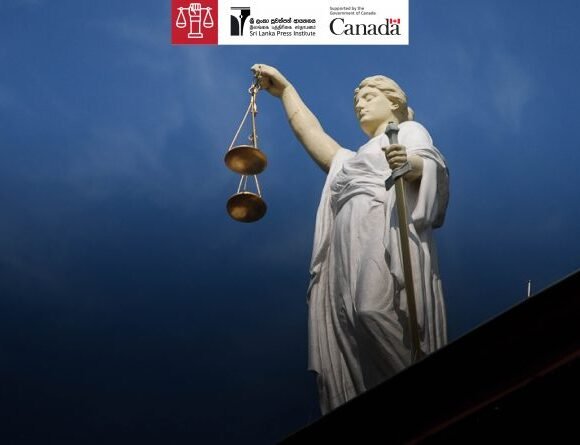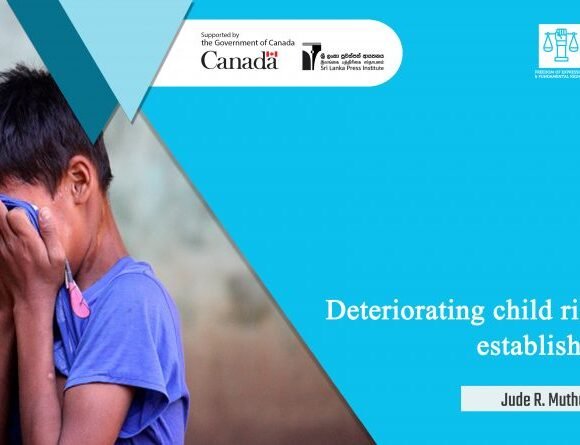
Why Should the Prevention of Terrorism Act be Repealed
Aruna Lakshman Fernando
The European Parliament passed a resolution on the 10th that will potentially have a decisive impact on Sri Lanka. The resolution seeks to abolish the Prevention of Terrorism Act, restore human rights and persuade Sri Lanka to abide by the 27 agreements it has signed with the international community. The European Union (EU) has stated that if the Sri Lankan government does not respond positively to the proposal, it stands to lose its GSP+ concession. The EU is bringing this resolution considering the United Nations Human Rights Council proposals on Accountability and the Promotion of Human Rights in Sri Lanka dated 23 March 2021.
The European Parliament is an organized structure of 705 members from the 27 member states of the European Union. The European Parliament is directly responsible for 447 million people in 27 member states. The European Union is essential to Sri Lankan commerce as it is the second largest trading partner of the country. By 2020, 22.4% of Sri Lanka’s total exports were traded with EU countries. This includes nearly 52% of Sri Lanka’s major export apparels. Therefore, the GSP+ tax concession granted by the European Union is significant for Sri Lanka, and its support to make our country a competitive supplier in the European market cannot be underestimated. However, Sri Lanka is currently facing the risk of losing the GSP+ concession due to its poor contribution to the protection of human rights in the country.
Preceded by allegations of the controversial use of the Prevention of Terrorism Act (PTA) and abuse of human rights, the GSP+ concession was once lost to Sri Lanka in 2012. Subsequently, the “Good Governance Government” re-applied for the GSP+ concession in 2016, and Sri Lanka regained it in 2017, promising to implement resolutions that protected human rights and amended the PTA. This also included an appreciable intervention in the reconciliation process between 2015 and 2017. However, four years later and with a change of government, Sri Lanka is at the risk of losing the GSP+ concession again. The EU’s conditions put forward in 2017 are similar to what Sri Lanka agreed to implement in 2017. This shows that both Sri Lankan governments in power during the last 4 years have deceived the international community in its obligations.
The PTA, which has humiliated Sri Lanka on the international stage for decades, was introduced temporarily in 1979 by the J.R. Jayewardene UNP government. The Prevention of Terrorism Act No. 48 of 1979 was amended and later made permanent as Act No. 10 of 1982. This Act, which came into force as amended Act No. 22 of 1988, gives the police unlimited power to arrest, investigate and detain a person. A reasonable number of people who have been arrested in this fashion are still detained without charges. The Act also provides for the use of confession by a suspect to a senior police officer as evidence against him in court. Protestors against the Act say that the suspects are severely tortured and that “confessions” are often coerced out of them to be presented as evidence.
Sending a letter to the Acting Inspector General of Police, C.D. Wickramaratna, the Commissioner of Investigations of the Human Rights Commission of Sri Lanka, Ramani Muththettuwegama says that her agency received information that suspects arrested under the PTA are forced to plead guilty, and the suspects would be taken to police headquarters and forced to sign pre-written statements. The international community and local activists have criticized the Act through the tenures of seven presidents: J.R. Jayewardene, R. Premadasa, D.B. Wijetunga, Chandrika Kumaratunga, Mahinda Rajapaksa, Maithripala Sirisena, and Gotabhaya Rajapaksa. Protests against the PTA have intensified in Sri Lanka’s north and east. The main reason for this is that the people of these areas were the worst affected by this Act during the civil conflict. It is reasonable to oppose the Act, especially since many Tamil youths arrested as suspects under the PTA were held under detention orders for long periods. This has deteriorated and affected social life in the north and east.
Many examples demonstrate how the PTA has been used to suppress political opposition than terrorism. There have been numerous attempts where the Act had been used to repress journalists, civil society activists, and minority communities who opposed the government in power. Using the PTA, the Deniyaya Police arrested journalists Ravindra Pushpakumara, Shalika Wimalasena, and Daya Neththasinghe of the “Lanka” newspaper, who once went to Deniyaya to write a feature article. They were later accused of plotting to assassinate President Mahinda Rajapaksa. However, the police were a little hesitant as these journalists had information of all their whereabouts. A few days later, the police agreed to proceed against the detainees under the PTA only on trespassing charges. The police also agreed to settle the case at the Mediation Board. Although the police were prepared to drop the charges of plotting to murder the head of state, the defendants disagreed. They were later released after a seven-year trial. There have been many instances where the Prevention of Terrorism Act has been misused in this way.
However, a significant number of ordinary people in this country do not understand this oppressive Act. In their view, terrorists exist only among minority communities. But the PTA has been used many times to oppress all sections of the people in this country. However, like many governments in Sri Lanka, the prevailing government, too, interprets the questioning of human rights by another country or organization as an interference in the sovereignty of the country. Even the proposal to repeal an Act that is incompatible with natural justice and a civilized society is interpreted by Sri Lankan governments as interfering in the internal affairs of the country. The government rhetoric has been internalized by a significant section of the people who are conditioned to think the same way. Their submissive attitude towards civil rights additionally contributes to such backward thinking. Ironically, it is the prerogative of government to intervene and protect civil rights of the people before it is pointed out by some other party. Similarly, it is the role of citizens to speak up for the rights they deserve as privileges in a civilized society before the international community highlights them.
ත්රස්තවාදය වැලැක්වීමේ පණත අහෝසි කළ යුත්තේ ඇයි?








